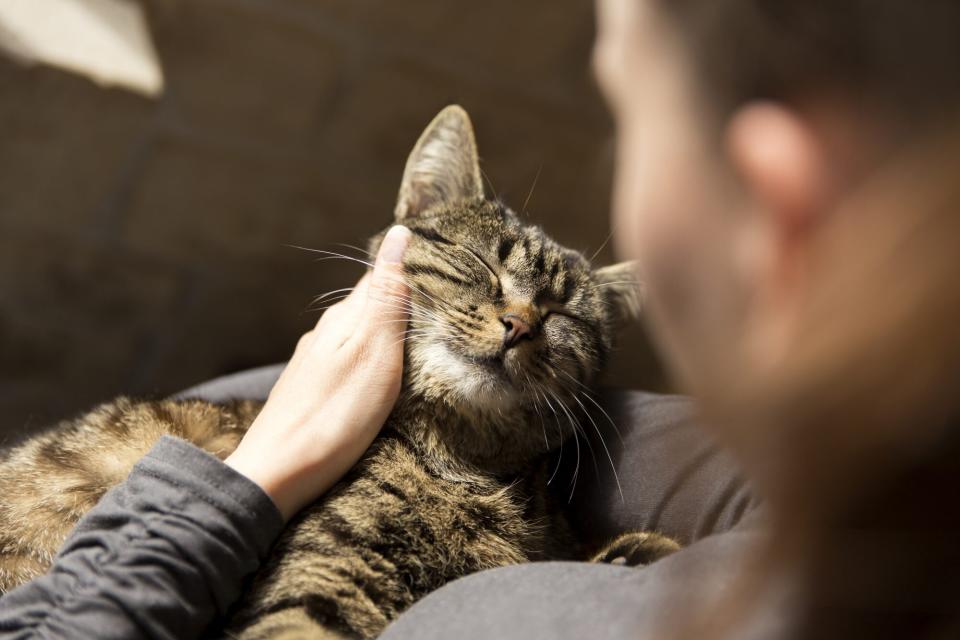How to Tell If Your Cat Loves You, According to Experts
Ask just about any dog owner, and they'll tell you that they've developed a special bond with their pet. As for cat owners? Knowing whether or not their feline companions feel attached to them can be a bit trickier. These animals have the reputation of being less affectionate than other pets, especially since it's harder to decode their loving behaviors. So, does your cat love you?
Simply put, the answer is a resounding yes, but it might not always be obvious, according to Inverse experts. "Love is a very complex concept that isn't easy to quantify—even in humans," says Kristyn Vitale, a cat researcher and assistant professor in animal health and behavior at Unity College. "What we do know is that other species, beyond humans, share a lot of if not all of the same emotions that we have," adds Board-certified Animal Behavior Clinic veterinarian Katherine Pankratz.

Westend61 / Getty Images
Cats use subtle cues, or "affiliate behaviors," to express their love to their owners, such as rubbing their body and head against you, sleeping nearby, walking next to you while wrapping their tail around you, and grooming you. "We can infer that they share affiliative behaviors, and [we] may interpret that as affection or potentially your definition of love," Pankratz says.
Related: Six Secret Cues That Cats Use to Communicate with Each Other
Experts also explain that cats can simply grow an attachment bond toward you as a sign of love. "An attachment bond is a comforting, affectional relationship between two individuals," Vitale says. "Cats form attachment bonds with their owners, leading to certain behavioral patterns which add up to the 'secure base effect.' This effect means that the cat will use you as a source of comfort and protection."
How your pet ultimately expresses their love to you will still truly come down to their individual personality. "Different things have influenced our lives. Neither of us may be more or less loving—we just may express it differently," Pankratz says.

